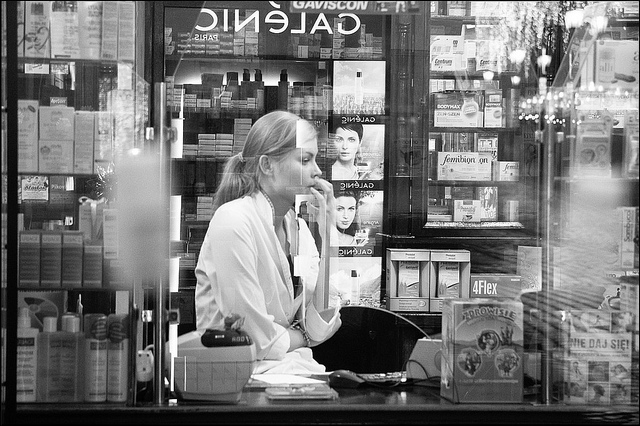
18 People Talk About What It Feels Like To Be An Introvert
When you're an introvert, small talk feels really cumbersome and being in a crowd — you feel alone.
By ![]() Michael Koh
Michael Koh
11. David Huh
As an introvert, I love spending time in solitude. Mainly because I have so many books that I want to read, movies that I want to watch, thoughts that I want to write down, and so forth. I can keep myself occupied for hours and hours without ever feeling bored.
Don’t get me wrong, I do at times have urges to interact with the outside world, but if I am exposed for too long, I grow quite weary.
One of the biggest hurdles of being an introvert is to not give off the Howard Hughes vibe. Naturally, I think people just feel comfortable around others who talk and can express their thoughts seamlessly. Unfortunately for me, I wasn’t built that way, so I have to just deal with the cards that I have.
Of course, I wish I was more of an extrovert, since these personalities are more of the standard at school or in the work place. But, what can you do, when you are who you are. I see myself as a pretty normal person, who just happens to enjoy his own company. If you have to blame anyone, don’t blame me, blame my hobbies.
12. Sharon Kay
It feels peaceful, calm, and grounded. It’s really easy to dive deep into a subject or a project because that’s what my mind naturally wants to do. Creating things gives me energy: I can write or research or do artwork for hours and not notice the time at all. I come away from the work refreshed.
Because I’m the only child of two introverts, I was spared the “you are weird” messages that some introverts get growing up. My spouse-equivalent is an introvert too. We have a pretty quiet household, and we still each need to spend a fair chunk of time each day alone.
I enjoy working collaboratively with others. I get to bring my strengths into the project, and I love to discover the strengths others have. We get to know each other well. But I still need to do most of the actual work alone. The more solitude I have, the more effective I can be. My home office is a sanctuary, and the best place to work. A noisy cubicle would wear me out and actively prevent me from getting anything done.
If I’ve been interacting with people all day, even if I loved every minute of it, I need to be by myself for at least an hour when I get home. I can recharge driving home alone, but I need to rest up from riding a crowded bus. Being in a crowd is tiring. Being in the garden, or with animals, or doing something creative like artwork, all by myself, refreshes me.
Loneliness?
If I can connect with other minds several times a week, working together or discussing ideas or just sharing the beauty of the world around us, I’m not at all lonely. I enjoy visiting with people who discuss ideas and search for the underlying reasons for things. Crowds tend to be frustrating because there’s rarely that level of connection in a crowd. Being physically around people doesn’t make me feel more or less lonely; it’s the sharing of ideas that’s important.
I’ve been at events where the music was too loud to have a conversation. What’s the point of being around all these interesting people if you can’t sit and talk? Think of being in a small space with a few dozen pre-schoolers who have all had way too much sugar and have been cheered on by a party host to be as hyperactive as possible. Now crank up the high-pitched children’s songs really loud. You may treasure every one of those children, but I bet you’d be ready for a lie-down in a quiet room pretty quickly. That’s what a noisy, crowded party is like for an introvert. It’s exhausting. If I’m stuck very long in a noisy crowd I feel physically battered by the noise – I expect to see bruises when I look in the mirror.
For must-attend events like company parties or important networking events, the trick is to go early and leave when things get hyper. Other than that, you get to know what groups and venues work for you, and follow up with interesting people later, when you can be in a small group and actually connect.
Here’s an interesting twist:
A while back, I started developing some extrovert tendencies. I’d find excuses to talk with my editor, whose office was next to mine (as an introvert, I’d normally shoot her an email). She’s very extroverted, and we both knew our Myers-Briggs profiles, and we found it hilarious that I was acting like an extrovert. Turns out that, at about 50, your weakest suit in the MBTI starts to get stronger. You still have your primary (introversion in my case), but it’s easier to draw on its complement when you want to. Later your second weakest suit starts to develop. It seems to be a part of growing up. Unfortunately, hardly anyone lives long enough to develop all of the MBTI functions. I think if we can live to be, hmmm, 120 or so we’d actually be full-fledged adults.











